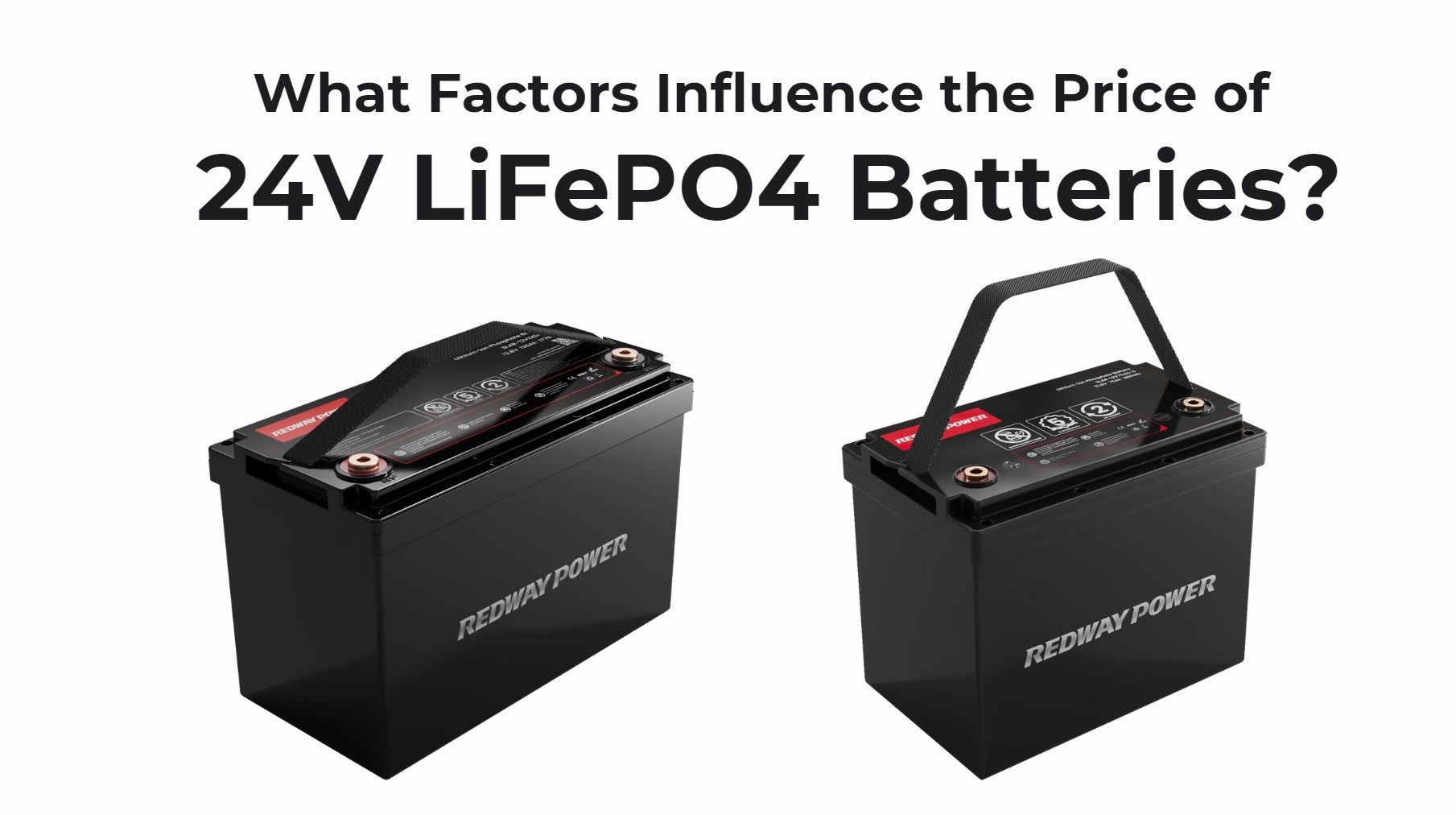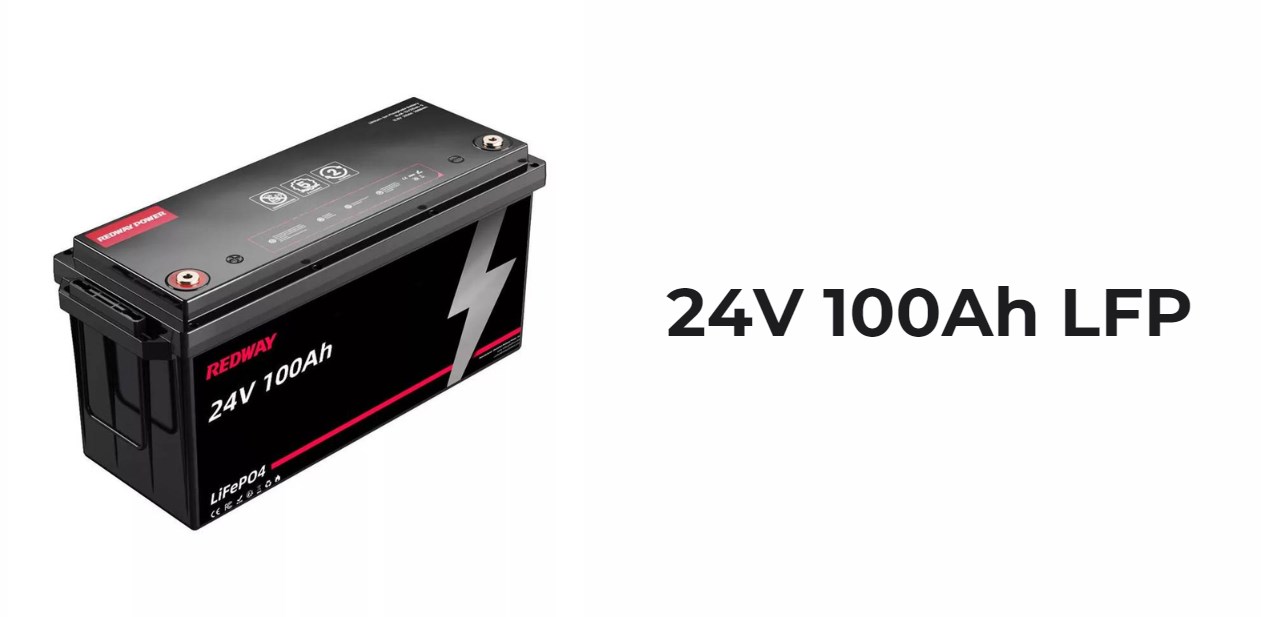When considering the purchase of 24V LiFePO4 batteries, understanding the factors that influence their price is crucial for making an informed decision. Several elements play a significant role in determining the cost of these advanced energy storage solutions. Here’s a detailed exploration of the key factors affecting the price of 24V LiFePO4 batteries.
The price of 24V LiFePO4 batteries is influenced by factors such as battery capacity, manufacturing costs, supply and demand dynamics, and the complexity of the Battery Management System (BMS). Additionally, brand reputation and market competition can also affect pricing, with established brands often commanding higher prices due to their reliability and performance.
1. Battery Capacity
Battery capacity, measured in amp-hours (Ah), is one of the primary determinants of a battery’s price. Higher capacity batteries can store more energy and are therefore more expensive. For example, a 100Ah 24V LiFePO4 battery will typically cost more than a 50Ah 24V LiFePO4 battery due to its ability to provide extended energy storage and longer runtimes. The capacity required is often driven by the specific energy needs of the application, whether for solar power systems, RV use, or golf carts.
Wholesale lithium golf cart batteries with 10-year life? Check here.
2. Manufacturing Costs
The manufacturing costs of LiFePO4 batteries are influenced by several factors:
- Raw Materials: LiFePO4 batteries use specialized materials such as lithium iron phosphate, which can be expensive. The price of these materials fluctuates based on market conditions and availability.
- Labor: Skilled labor is required to assemble LiFePO4 batteries, which adds to the cost. Advanced manufacturing techniques and quality control measures also contribute to higher production expenses.
- Overhead: Facilities that produce LiFePO4 batteries must meet rigorous safety and quality standards, which can increase operational costs.
The combination of these factors makes the manufacturing process of LiFePO4 batteries more costly compared to traditional battery types like lead-acid batteries.
Want OEM lithium forklift batteries at wholesale prices? Check here.
3. Supply and Demand
Supply and demand dynamics in the battery market significantly affect pricing. As demand for LiFePO4 batteries grows, particularly with the rise of renewable energy systems and electric vehicles, prices may increase. However, as manufacturers scale production and achieve economies of scale, the per-unit cost may decrease over time. Market trends, such as the push for greener technologies and increased adoption of electric vehicles, also play a role in shaping demand and influencing prices.
4. Battery Management System (BMS)
A Battery Management System (BMS) is crucial for the operation and longevity of LiFePO4 batteries. Batteries with an integrated BMS provide protection against overcharging, overheating, and deep discharges. This added functionality enhances the battery’s performance and safety but also increases the cost. The complexity and quality of the BMS can vary, with more advanced systems commanding higher prices.
5. Brand Reputation
Brand reputation is another significant factor influencing battery price. Batteries from well-established brands with a proven track record of quality and reliability often come with a higher price tag. These brands invest in research and development, ensuring their products meet stringent performance standards and customer expectations. In contrast, lesser-known brands may offer lower prices but potentially at the expense of reliability and performance.
6. Warranty
The warranty period offered with LiFePO4 batteries reflects the manufacturer’s confidence in the product’s durability and performance. Batteries with longer warranties, typically ranging from 5 to 10 years, are priced higher due to the assurance of long-term reliability. A comprehensive warranty often includes coverage for defects and performance issues, providing added value to the consumer.
7. Application and Features
Batteries designed for specific applications or equipped with additional features can be more expensive. For instance:
- Advanced BMS Features: Some batteries come with enhanced BMS functionalities, such as Bluetooth connectivity for real-time monitoring and diagnostics.
- Specialized Designs: Batteries tailored for particular uses, like marine applications or high-performance electric vehicles, may incorporate specialized designs and components, increasing the overall cost.
The inclusion of such features enhances the battery’s versatility and functionality, contributing to a higher price point.
Conclusion
The price of 24V LiFePO4 batteries is influenced by a range of factors, including battery capacity, manufacturing costs, supply and demand, BMS features, brand reputation, warranty, and application-specific features. Understanding these elements can help you make a well-informed decision, ensuring that you select a battery that meets your needs while offering the best value for your investment. Redway Battery, with over 12 years of expertise in LiFePO4 battery production, provides high-quality solutions for various applications. For customized battery solutions and a quick quote, contact Redway Battery today.







